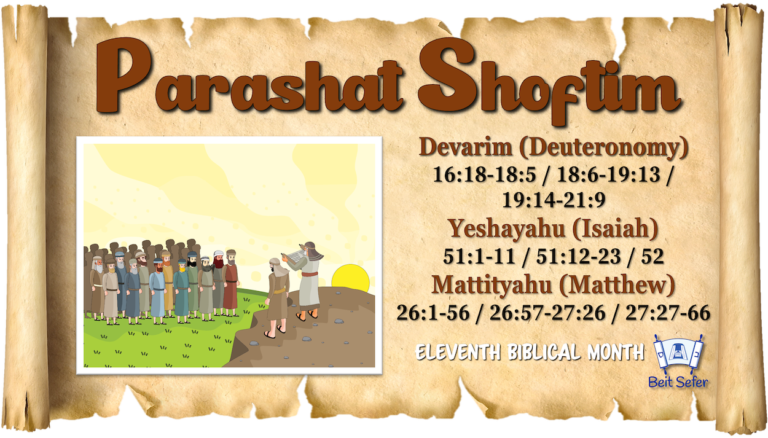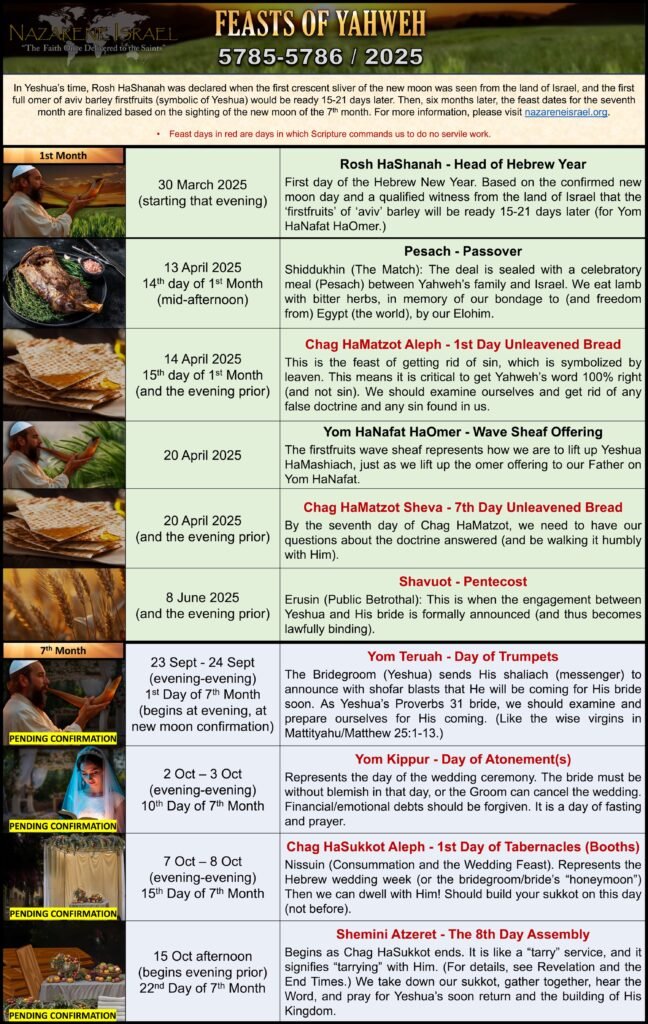Parashat Shoftim – Year 2 – A New Prophet like Moshe.
Shabbat Shalom, Nazarene family.
This week we will study the parashat Shoftim, portion of year 2, where we will learn about Yahweh’s care for His people through laws and principles that guarantee justice and provision. The importance of the Levitical service is established and the characteristics of the true prophet, who will speak in the name of Yahweh, are pointed out. In addition, rules are presented to protect life through the creation of cities of refuge, highlighting mercy and justice. Taken together, these verses reflect a call to live in obedience, integrity and reverence for Yahweh.
Devarim (Deuteronomy) 18:15-16
15 “Yahweh your Elohim will raise up for you a Prophet like me from your midst, from your brethren. Him you shall hear,
16 according to all you desired of Yahweh your Elohim in Horeb in the day of the assembly, saying, ‘Let me not hear again the voice of Yahweh our Elohim, nor let me see this great fire anymore, lest I die.’
This week corresponds to the reading of the texts (in bold):
- Devarim (Deuteronomy) 16:18-18:5 / 18:6-19:13 / 19:14-21:9
- Yeshayahu (Isaiah) 51:1-11/ 51:12-23 / 52
- Mattityahu (Matthews) 26:1-56 / 26:57-27:26 / 27:27-66
Summary of the weekly study, Year two:
Devarim (Deuteronomy) 18:6-19:13
In these verses, Yahweh instructs on various aspects of maintaining order and justice in Israel. Care is given to the Levites, who depend on the people for their sustenance while serving in the sanctuary. The importance of listening to the true prophet, sent by Yahweh, in contrast to false prophets who mislead the people, is also emphasized. In addition, laws about cities of refuge, designed to protect those who cause accidental deaths, are presented, highlighting the difference between intentional and unintentional homicide. These teachings reflect Yahweh’s desire to establish a people guided by justice, mercy and obedience.
Yeshayahu (Isaiah) 51:12-23
In these verses, Yahweh comforts His people, reminding them that He is their Creator and Savior, and that they need not fear mortal men or present difficulties. Yahweh assures them of His power to redeem and deliver, encouraging them to trust in His promise of restoration. It also describes the end of suffering and oppression of His people, while judgment will fall upon their oppressors. This message of hope and justice demonstrates Yahweh’s continuing care and faithfulness to His covenant, inviting the people to live with confidence in His salvation and eternal purpose.
Mattityahu (Matthews) 26:57-27:26
In these verses, Yeshua’s trial before the Sanhedrin and Pilate is described. Yeshua faces false accusations, keeping silent before his accusers, fulfilling the Scriptures. Kefa (Peter) denies knowing Yeshua, showing the human struggle with fear. The text narrates Yehudah’s repentance after betraying the Messiah, although his remorse leads him to suicide. Pilate, while recognizing Yeshua’s innocence, yields to the people’s pressure, handing him over to be crucified. These events reflect the injustice suffered by the Messiah, His voluntary surrender and the fulfillment of the plan of redemption, showing us His obedience and sacrificial love.
–
Enjoy this fun activity with the whole family. Inside you will find development questions for the three weekly sections (Torah, Haftarah and Brit Chadasha). While the older ones discuss the questions and their answers, the younger ones can color the picture related to the teaching, solve a maze, find the 7 differences and much more. We encourage you to do it week by week and instill in your children the habit of studying Yahweh’s word as a family.
We hope you and especially your sons and daughters enjoy this effort. For it is through the study of the Scriptures that we can come to understand the love and care that Yahweh has always had for us. And also to perceive that He has been taking care of even the smallest detail, so that we can take care and enjoy all that He gives us. That is why it is so important that our children learn and grow up knowing that they are loved by the Creator of all that exists.
Shalom.
To view the Tanach studies, click here
To view the Brit Chadasha studies, click here




